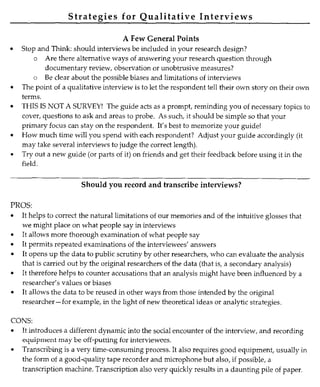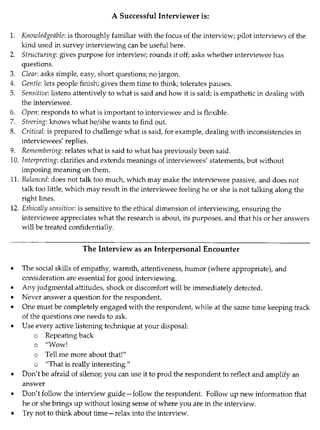This document provides guidance on conducting qualitative interviews. It notes that interviews should only be included in research design if alternative methods won't work. The goal of qualitative interviews is to let respondents tell their own stories in their own words. Interview guides should be simple prompts to cover topics rather than rigid scripts. Successful interviewers are knowledgeable, structure the interview well, ask clear and simple questions, listen attentively, are flexible and follow up on new information from respondents rather than rigidly following the interview guide. Both the social and ethical aspects of interviews are important to consider.

